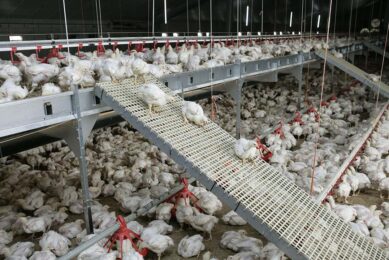AMI claims chicken food safety study is misleading

A new Pew Commission-funded study misleads consumers about US meat and poultry, which is among the safest in the world, claimed the American Meat Institute in a recent statement.
The findings of the nationwide study by the Translational Genomics Research Institute (TGen), which involved a small number of samples from retail stores, suggest that a significant public health risk exists, claiming that nearly half of the meat and poultry samples — 47 percent — were contaminated with S. aureus, and more than half of those bacteria — 52 percent — were resistant to at least three classes of antibiotics. However, federal data from the Centers for Disease Control and Prevention (CDC) show steady declines in foodborne illnesses linked to consumption of meat and poultry overall and indicate that human infections with Staphylococcus aureus ( “Staph”) comprise less than 1% of total foodborne illnesses.
AMI notes that the study involved only 136 samples of meat and poultry from 80 brands in 26 retail grocery stores in five US cities. This small sample is insufficient to reach the sweeping conclusions conveyed in a press release about the study. By contrast, when the US Department of Agriculture studies the prevalence of bacteria, their work involves thousands of samples collected over long periods of time to ensure accuracy.
While the study claims that the many of the bacteria found were antibiotic resistant, it does note that they are not heat resistant. These bacteria are destroyed through normal cooking procedures, which may account for the small percentage of foodborne illnesses linked to these bacteria.
“Despite the claims of this small study, consumers can feel confident that meat and poultry is safe,” said American Meat Institute Foundation President James H. Hodges. “Federal data show that S. aureus infections in people that are caused by food are uncommon. CDC data also show that foodborne illnesses as a whole are declining due to our growing scientific knowledge about how to target and destroy bacteria on meat and poultry.”
Source: AMI
Join 31,000+ subscribers
Subscribe to our newsletter to stay updated about all the need-to-know content in the poultry sector, three times a week. Beheer
Beheer








 WP Admin
WP Admin  Bewerk bericht
Bewerk bericht